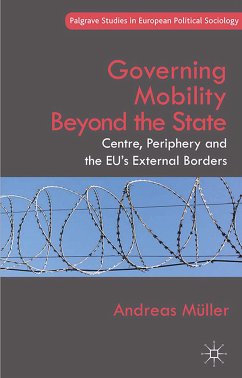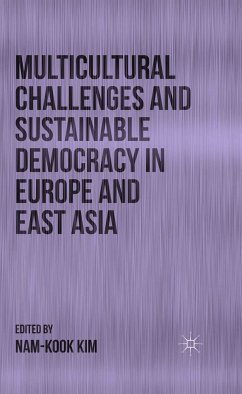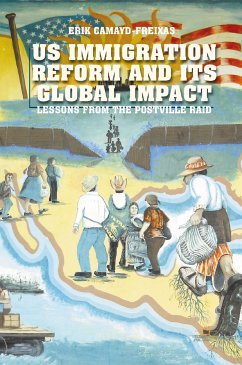
Governing Mobility Beyond the State (eBook, PDF)
Centre, Periphery and the EU's External Borders
Versandkostenfrei!
Sofort per Download lieferbar
40,95 €
inkl. MwSt.
Weitere Ausgaben:

PAYBACK Punkte
20 °P sammeln!
This book explores the structural tensions and conflicts that arise with the abolition of border controls between the EU's member states and how this conflict ridden relationship affects and is affected by the institutional shape of the EU's external borders.
Dieser Download kann aus rechtlichen Gründen nur mit Rechnungsadresse in A, B, BG, CY, CZ, D, DK, EW, E, FIN, F, GR, HR, H, IRL, I, LT, L, LR, M, NL, PL, P, R, S, SLO, SK ausgeliefert werden.












